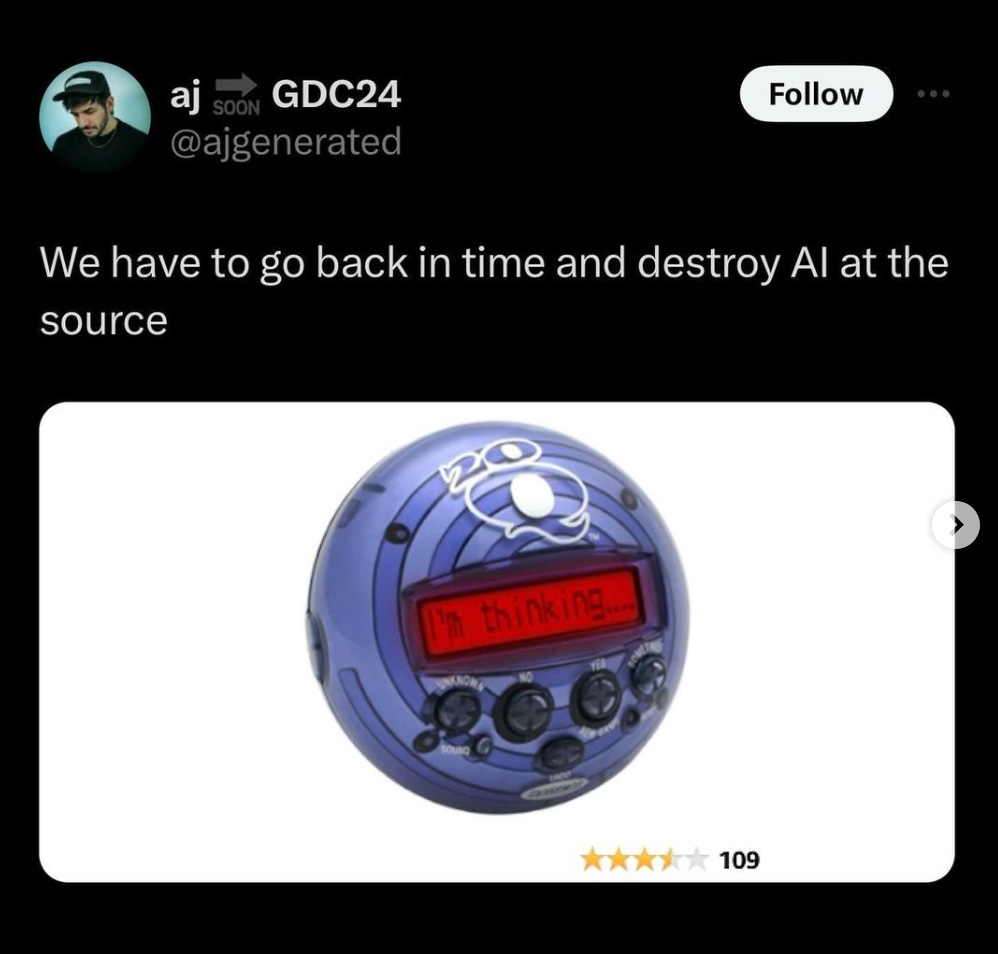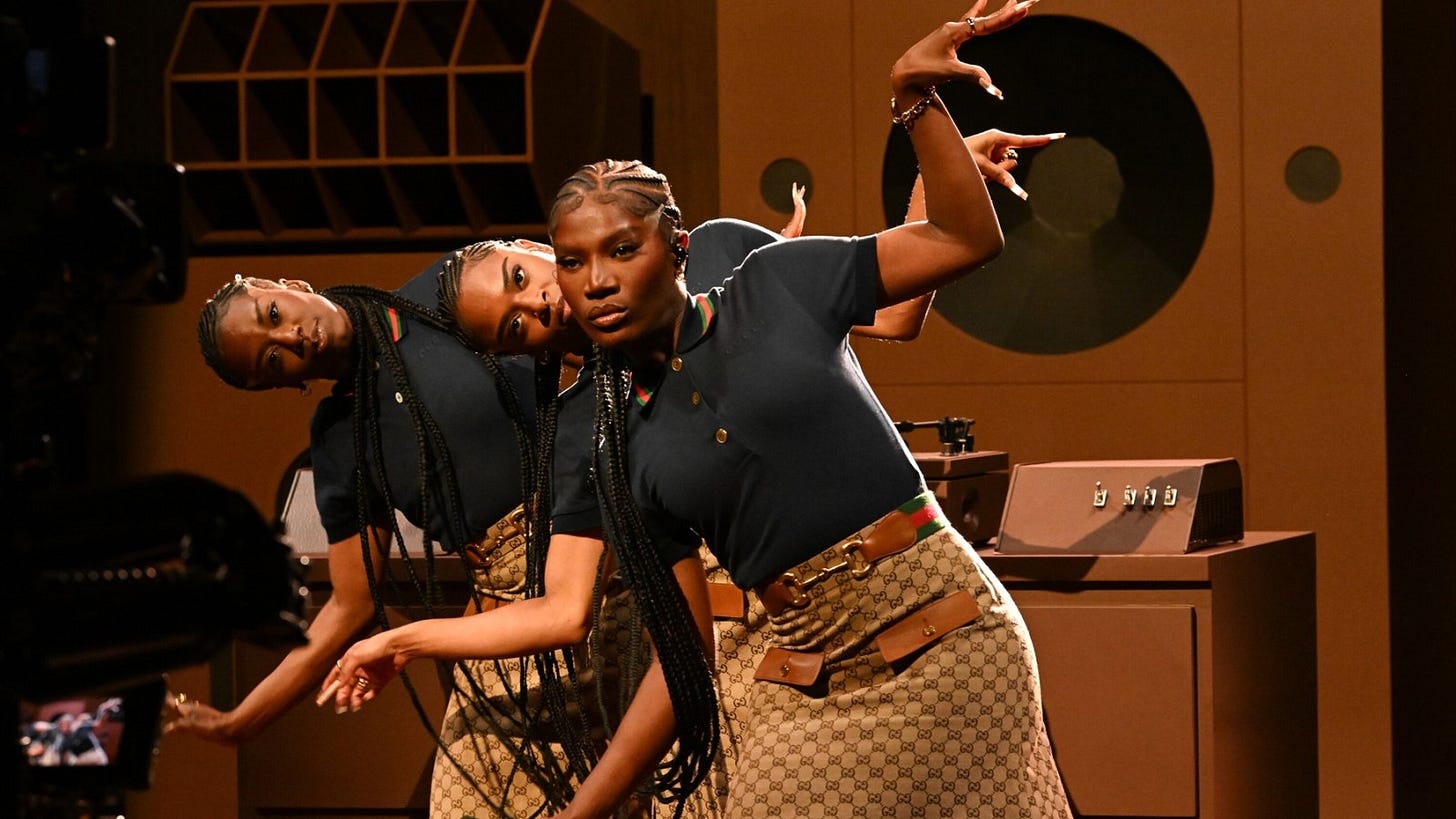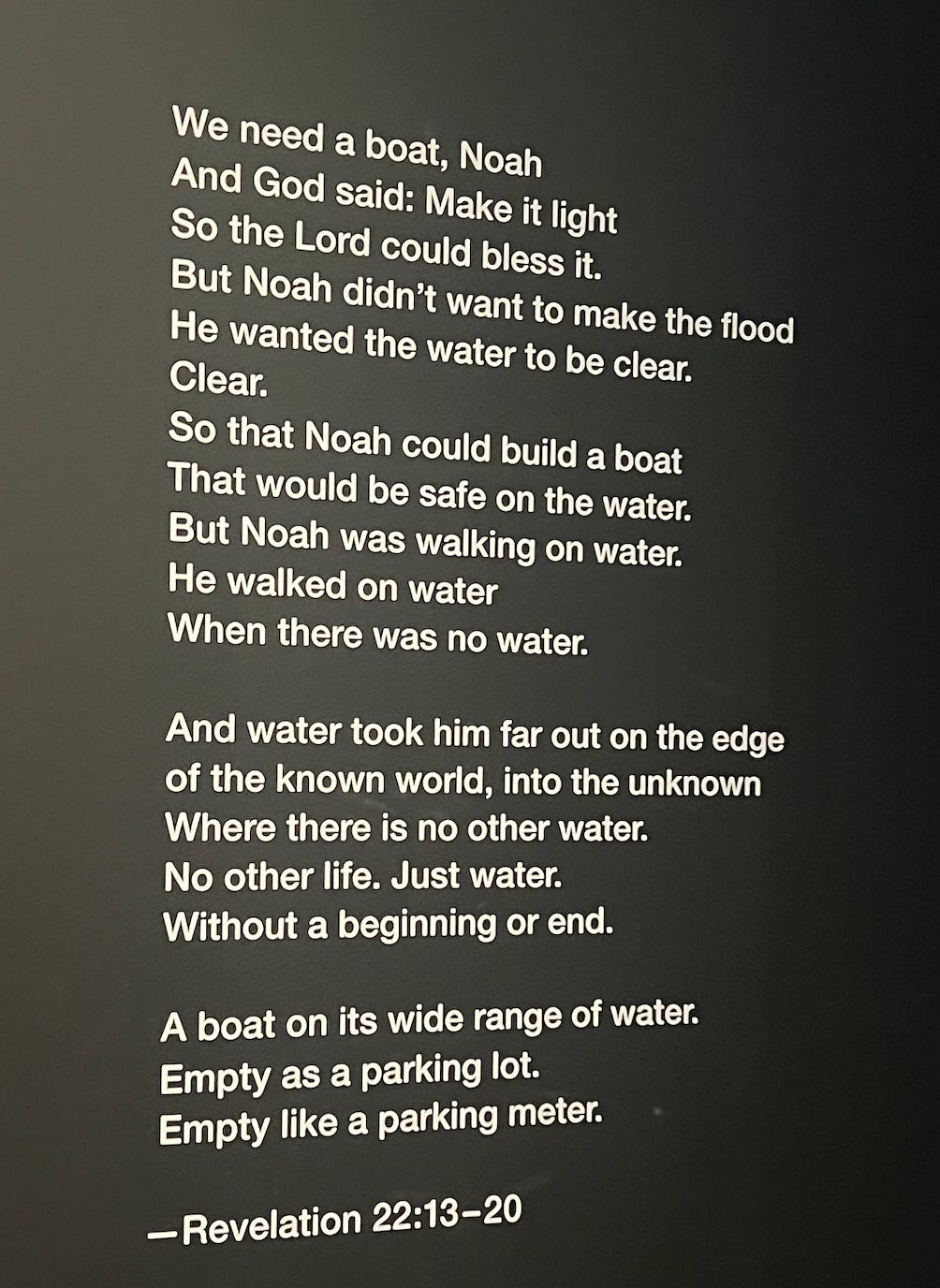If I’ve said it hundred times, I still haven’t said it enough—AI is not your savior. It is a machine mining the recesses of your mind for free.1
It’s rare that a tool can help artists, scientists, and everyone in between, but it will only ever be able to spit out what our limited brains can feed it. It can display two ideas side by side, but it will never understand the intangible reason it made you laugh. Don’t even get me started on the environmental impact.
Nevertheless, I keep my mind open to the pro-humanity pieces when I can. Most of the time I’m just talking shit and slowly convincing myself to become a fiction writer in the mountains.
My top 5 quotes from Kate Crawford’s Atlas of AI (I will not shut up about this book)
“To understand how AI is fundamentally political, we need to go beyond neural nets and statistical pattern recognition to instead ask what is being optimized, and for whom, and who gets to decide.”
“The data economy is premised on maintaining environmental ignorance….Terms like data mining [helped] shift the notion of data away from something personal, intimate, or subject to personal ownership and control toward something more inert and nonhuman.”
“Even the largest troves cannot escape the fundamental slippages that occur when an infinitely complex world is simplified and sliced into categories.”
“Human intelligence and expertise rely heavily on many unconscious and subconscious processes, while computers require all processes and data to be explicit and formalized.”
“Classifications can disappear, as Bowker and Stark observe, ‘into infrastructure, into habit, into the taken for granted.’” They “naturalize a particular ordering of the world which produces effects that are seen to justify their original ordering.” This “restricts the range of how people are understood and can represent themselves, and it narrows the horizon of recognizable identities.”
Maybe ChatGPT can teach us to stop hedging our bets:
A human who is unsure of themselves will hedge their bets with phrases like ‘I think’, ‘I believe’, ‘I may be wrong’ or ‘as far as I know’. But ChatGPT cheerfully ventures beyond the limits of its knowledge without any indication that it’s doing so.
via Csaba Osvath on are.na. Also collected by the same human:
"The secret of success lies not so much in abundance of thought as in our ability to follow one well-chosen subject to the exclusion of all others."
Less specific to AI but no less applicable. Just because I had a bot read every award winning ad that’s ever existed, and maybe even asked it to write the next one, its abundance of data doesn’t make me any more or less likely to succeed.
“The absence of limitations is the enemy of art.” - Orson Welles
There’s a reason we can’t plant whatever we want, wherever and whenever we want. There’s a reason we can’t live forever.
We are all on the superhighway to sounding exactly the same. We’re already here, without or without the robot help.
I feel imposter syndrome when I think someone has already written something. Will Chat GPT make that worse? Or will it remind me that truly original thought isn’t always the right answer or attainable?
AI COULD NEVER, A SAMPLING
I imagine AI is already plagiarizing or confusing itself.
NOTE: This video is 13 years old…
These days, it’s increasingly clear to me that we have a new overlord: the Summary. Thanks to AI, we are experiencing the enshortification (sorry, Cory Doctorow) of everything. - Why Is This Interesting, MC
Multidisciplinary artist Laurie Anderson has been tinkering with language learning models long before Sam Altman was a household name. I saw an exhibit of her “AI Bible” and it was really compelling.
“Then we put everything that I’ve ever said, or written into this supercomputer and they crossed it with the Bible. They sent me a nine thousand-page document: the Bible according to me, which was frightening because I recognized my voice. It had my style in it. And in this Bible, I'm telling you with great confidence about the creation of the world, what happens when man was given dominion over animals; I describe fiery floods and the end of the world and Revelation. Half of it is really, really bad poetry, and then a quarter of it is pretty interesting, and a quarter of it is fantastic. So, like every writer, I’m an editor. I mean everyone who writes is also an editor. That’s a part of your job, maybe there are some writers who just write and never edit.”
I put these AI generated playlists in Bits #11. If this is what’s taking my job, I think I’ve got some time. The first is nice, but the second shows some real cultural nonsense and the last is an old idea.
Our new obsession, AI, isn’t intelligent as much as it is incredible at guessing what should come next based upon the past. It’s a tool to usher in our future, yet built upon the average. How symbolic. -
When will AI go from generating to judging work? I know you can already ask it to edit writing for you, but I don’t think it’ll be long before we uploading full ads for predicted success checks.
Related, how will ChatGPT change the way we give creative feedback? I fear there will be a generation of creative directors that speak to people like they do to the robot, or get so used to its constraints that they forget there are more options than “shorter” and “more conversational.”
Ok so the robot might take my job. When that day comes, I will join the resistance and start a hand-crafted copy studio where I only work on my typewriter.
When that fails, I’ll get a new job, but not before running head first into a field of strawberries to the exit of ROI from my vocabulary.
one of the many ways Sam Altman has proved he has no intention of making AI of any use to us












